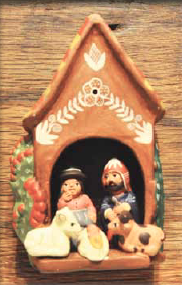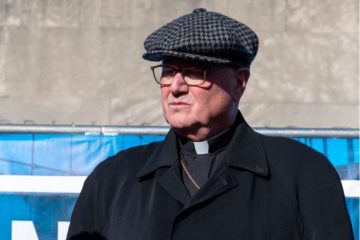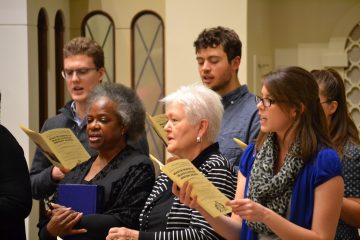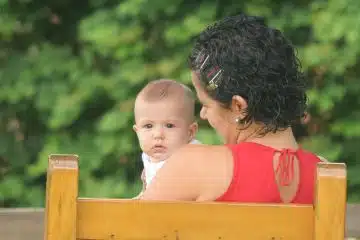Las Posadas celebrates Mary and Joseph’s journey

By Mary Bertonlini
For The Catholic Telegraph
“And Joseph too went up from Galilee from the town of Nazareth to Judea, to the city of David that is called Bethlehem…” (Luke 2:4).
A very familiar verse to all Christians around the globe that begins the traditional story of Christmas: pregnant Mary heading out from Nazareth with Joseph leading the way; Joseph begging for lodging; the settling for a stable because the inns were full; the Baby in a manger; animals, shepherds, angels and magi.
As in most Gospel stories, details aren’t included. Christian readers get the essence, not the particulars. Luke doesn’t say Mary and Joseph’s journey totaled 80 miles; that it went through rough, unpopulated country where robbers waited; that it passed through Samaria where folks were none too friendly. Neither does Luke say that Mary and Joseph would have spent two or three nights on the road, maybe more, probably making camp with fellow travelers. And nowhere does Luke report that Mary rode a donkey. She may well have walked. A woman in her final days of pregnancy walks – or rides a donkey – the distance from Cincinnati to Columbus. Quite a feat, pregnant or not.
Once in Bethlehem, the door-to-door nightmare began. The inns were full, or if, like some biblical scholars suggest, Joseph called on family, they may have said, “Sure, come on in,” but they didn’t offer a room in their home proper. Whether it was innkeeper or family who finally opened up for Mary and Joseph, Luke lets his readers know the couple celebrated the birth of Jesus in a stable by writing that Mary placed her newborn in a manger.
Across cultures, people recreate this age-old story. Among Latino Catholics, a 400-year-old tradition called Las Posadas (the inns) depicts Mary and Joseph’s journey from Nazareth to Bethlehem. It takes place nine nights in a row, hammering home each time the need for friendship and hospitality. Joseph knocks at the door of various designated homes, getting repeatedly rebuffed until, finally, he and Mary receive welcome. Then they and all who have been accompanied them enter that home, where they celebrate, sing, pray, share food, and drink hot chocolate. Jesus and his parents have been accepted!
Here in the United States, those who work with undocumented adults and unaccompanied minors from Latin America tell story after story of people “knocking” in need of friendliness and compassion. One advocate said strongly, “Far too often, our immigrants receive rejection, ridicule, and inhumane treatment when what they need is love.” A few months ago, for example, four children, ages 10-17, made their way from Guatemala to join their parents who had come to the United States to earn survival money to send home. The children left because the oldest had been raped and all were targeted for sex and drug trade. When they crossed the Rio Grande, immigration held them for a month in a warehouse where they slept on a concrete floor, had only plastic to cover them, and had to live on one glass of water and one apple each day for a month.
María, a woman who left El Salvador fleeing for her life, was detained in a camp for five days, corralled with 300 other people in an area the size of a Taco Bell dining room, packed in so tightly they couldn’t sit or lie down. When guards addressed these prisoners, it was not with sir or ma’am, but animal.
José, a 15-year-old high school student, had his mother taken from him suddenly, no chance even to say good-bye. She was called to Columbus for what she thought to be a routine check with immigration there. Instead, she was flown to Chicago and then deported. This was after 10 years in the States and regular contact with immigration officials as required.
All bad? No. Compassion does counteract hostility and hatred. High school administrators are showing kindness and consideration to José, and a lawyer left her home and state of residence to represent Lidia and get her on her way to a decent home and legalization.
Archdiocesan Hispanic Ministry Director Father Louis Gasparini said, “I have encountered the most compassionate of people who repeatedly give of themselves to help struggling immigrants.” A prime example he gave is the story of a woman who was raped and beaten mercilessly in Cincinnati. The story ran in the Enquirer, and within a month, thousands of dollars came in to help her, accompanied by notes of deepest care and concern.
Las Posadas is a beautiful reminder to practice hospitality as a way of life.
This article originally appeared in the December 2014 print edition of The Catholic Telegraph.













